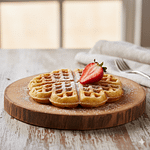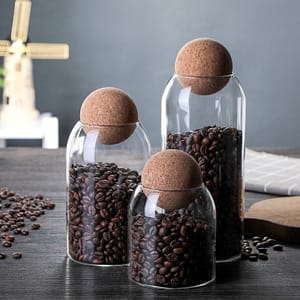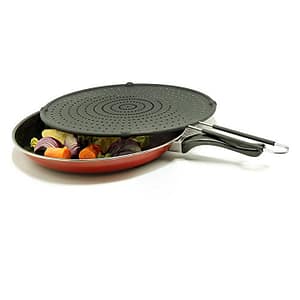
Blog Details

The Silent Energy Drainer Hiding in Your Pantry
We’ve all been there: you get enough sleep, you try to eat “well,” yet by mid-afternoon, a familiar wave of exhaustion hits.
Your focus wanes, your mood dips, and all you crave is another coffee or a sugary pick-me-up. What if the root cause of this persistent energy drain isn’t your sleep schedule or your workload, but something far more subtle, hidden in plain sight within your very own pantry?
It’s not a mystery illness or a complicated deficiency. The silent energy drainer hiding in many of our pantries is an overabundance of refined carbohydrates and processed sugars.
These seemingly innocuous staples can secretly sabotage your vitality, creating a relentless cycle of energy spikes and crashes that leaves you feeling perpetually drained.
The Sugar Rollercoaster: How Refined Carbs Steal Your Vitality
Our bodies convert carbohydrates into glucose (sugar) for energy. Whole, unprocessed carbohydrates (like fruits, vegetables, and whole grains) release glucose slowly, providing a steady stream of energy. Refined carbs and processed sugars, however, do the opposite.
- The Immediate Rush: When you consume foods high in refined sugars or white flour, your body rapidly converts them into glucose. This causes a sudden spike in blood sugar. You might feel an initial burst of energy, a “sugar high.”
- The Inevitable Crash: To counteract this spike, your pancreas releases a flood of insulin. Insulin works quickly to move sugar out of your bloodstream. This rapid reduction in blood sugar leads to the dreaded “sugar crash” – that feeling of fatigue, irritability, and lack of focus. Your body then craves more quick energy (more sugar!), perpetuating the cycle.
- Nutrient Depletion: Foods high in refined carbs and sugars are often “empty calories,” stripped of essential vitamins, minerals, and fiber. When these dominate your pantry, they displace nutrient-dense whole foods, leading to subtle nutrient deficiencies that further impact your energy levels.
Where These Energy Drainers Hide (It’s Not Always Obvious!)
The obvious culprits are sugary drinks, candies, and white bread. But these silent drainers are often lurking in less obvious places:
- Breakfast Cereals: Many popular cereals are loaded with sugar and refined grains, setting you up for an energy crash before noon.
- Packaged Snacks: Granola bars, crackers, and even some “healthy” snack mixes can be packed with hidden sugars and processed flours.
- Condiments & Sauces: Ketchup, BBQ sauce, salad dressings, and marinades often contain surprisingly high amounts of added sugar.
- “Low-Fat” or “Fat-Free” Products: When fat is removed, sugar is often added to improve taste.
- White Pasta & Rice: While not inherently “bad,” their refined nature means they digest quickly, leading to blood sugar fluctuations compared to their whole-grain counterparts.
Fixing Your Pantry, Fixing Your Energy: Simple Steps to All-Day Vitality
The good news? You have the power to transform your pantry into an energy-sustaining powerhouse.
- Become a Label Detective: Start reading nutrition labels. Look beyond the front-of-package claims. Pay attention to “added sugars” and check the ingredients list for terms like high-fructose corn syrup, dextrose, maltose, and sucrose.
- Swap for Whole Grains: Replace white bread, white pasta, and sugary cereals with their whole-grain versions: whole wheat bread, whole grain pasta, oats, quinoa, brown rice, and farro. These are rich in fiber, which slows down sugar absorption and provides sustained energy.
- Embrace Healthy Fats & Proteins: Stock your pantry with nuts, seeds (chia, flax, pumpkin), nut butters (check for no added sugar), and quality canned fish (like sardines or tuna). For your fridge, prioritize lean proteins and healthy fats like avocados. Pairing protein and healthy fats with carbohydrates helps stabilize blood sugar.
- Snack Smart: Swap processed snacks for fresh fruits, vegetables with hummus, a handful of unsalted nuts, or plain Greek yogurt. Consider keeping your healthy snacks in easily accessible airtight containers to maintain freshness and visibility.
- Hydrate, Hydrate, Hydrate: Sometimes, what feels like fatigue is simply dehydration. Keep fresh water accessible and consider infusing it with fruit or herbs for flavor.
- Organize for Success: A well-organized pantry makes healthy choices easier. When nutrient-dense options are visible and accessible, you’re more likely to reach for them. Utilizing clever pantry organizers can make a huge difference.
Transforming your pantry doesn’t have to be an overnight overhaul. Start small. Each refined carb or sugary snack you swap for a whole, nutrient-dense alternative is a step towards unlocking sustained energy and reclaiming your vitality. Your body will thank you for it!
Related Reading:
- “The Unexpected Kitchen Secret That Could Add Years to Your Life“ (Link to our blog on kitchen cleanliness/organization)
- “Are You Making These 5 Common Cooking Mistakes That Are Silently Harming Your Health?“ (Link to our blog on cooking mistakes)
FAQs About Pantry Foods and Energy Levels
Q1: Why do I feel tired after eating sweet or starchy foods?
A1: This is often due to the “sugar crash.” Refined sugars and simple starches cause a rapid rise in blood sugar, triggering a large insulin release. This quickly lowers blood sugar, leading to fatigue, irritability, and cravings.
Q2: Are all carbohydrates bad for energy?
A2: Absolutely not! Complex carbohydrates found in whole grains, fruits, and vegetables are vital for sustained energy. They are rich in fiber, which slows down glucose absorption, preventing rapid blood sugar spikes and crashes.
Q3: How quickly will I notice an energy difference after changing my pantry?
A3: Many people report feeling a difference within a few days to a week of consistently reducing refined sugars and increasing whole foods. Initial “sugar withdrawal” symptoms might occur, but these are typically short-lived.
Q4: What are some quick, energy-boosting snacks I can keep in my pantry?
A4: Great options include unsalted nuts and seeds (almonds, walnuts, chia seeds), dried fruits (in moderation, watch for added sugar), whole-grain crackers with nut butter, roasted chickpeas, or homemade trail mix.
Q5: How can I identify hidden sugars on food labels?
A5: Look for ingredients ending in “-ose” (dextrose, maltose, sucrose), syrups (corn syrup, rice syrup, maple syrup), and fruit juice concentrates. Also, be aware that many processed foods list multiple forms of sugar, which collectively add up.
Our Products
-
Unique Book Coffee Cup – Stack of Books Design
₹1,681.00 – ₹1,695.00Price range: ₹1,681.00 through ₹1,695.00 Select options This product has multiple variants. The options may be chosen on the product page -
Salt & Pepper Electric Grinder – Rechargeable
₹2,435.00 Select options This product has multiple variants. The options may be chosen on the product page -
Glass Storage Jar – Cork Lid & Minimalist Design
₹2,563.00 Select options This product has multiple variants. The options may be chosen on the product page -
Food grade Silicone Splash Screen – Mess-Free Cooking
₹2,158.00 Select options This product has multiple variants. The options may be chosen on the product page -
Stainless Steel Corn Cob Holders – Mess-Free
₹1,086.00 Select options This product has multiple variants. The options may be chosen on the product page -
Silicone Donut Mold – Makes 6 Non-Stick Donuts
₹833.00 Select options This product has multiple variants. The options may be chosen on the product page
Products
-
Unique Book Coffee Cup – Stack of Books Design
₹1,681.00 – ₹1,695.00Price range: ₹1,681.00 through ₹1,695.00 Select options This product has multiple variants. The options may be chosen on the product page -
Salt & Pepper Electric Grinder – Rechargeable
₹2,435.00 Select options This product has multiple variants. The options may be chosen on the product page -
Glass Storage Jar – Cork Lid & Minimalist Design
₹2,563.00 Select options This product has multiple variants. The options may be chosen on the product page -
Food grade Silicone Splash Screen – Mess-Free Cooking
₹2,158.00 Select options This product has multiple variants. The options may be chosen on the product page










